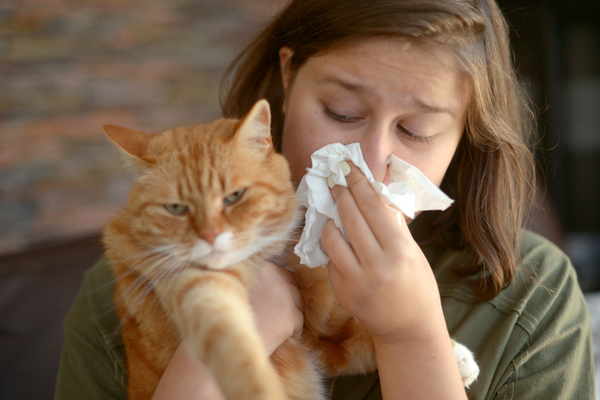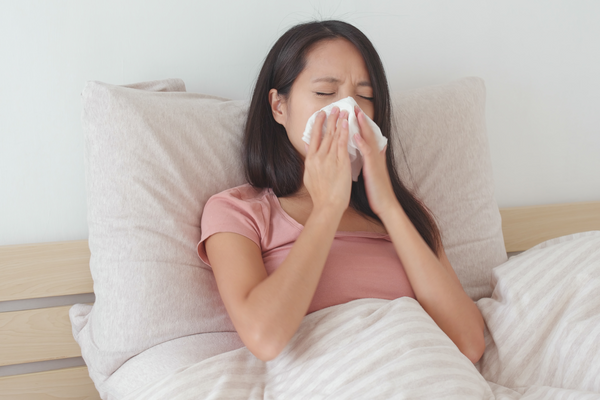The Right Way To Wash Your Towels

You might not give a second thought to how you wash your bath towels. But, it turns out there’s a proper way to launder them, and most people have been getting it wrong. Think back to when you first bought your towels and washcloths, and you’ll remember how fluffy and luxurious they were – no doubt worthy of a fine hotel. So, how did you wind up with stiff or scratchy towels that no longer absorb well? And what about that strong, funky odor that arises whenever your towels get wet, or those mysterious brownish-orange or grey stains that appear and won’t come out?
Before you toss your bath linens, take heart: All it takes to have sparkling clean, stain-free, fresh smelling, plush towels and washcloths is knowing the right way to wash them. Let’s take a look!
Keep Your Washer Clean
One of the leading causes of funky-smelling towels and mystery stains is (ironically) the state of your washing machine. Towels are designed to be absorbent, so if your washer isn’t clean, your towels will absorb the accumulated body soil, dirt, mold, odor-causing bacteria, and other grimy residues that are lingering in your washer. Gross, right?
Start by giving your washer a good cleaning. If your washing machine has a self-clean function, choose that cycle and follow the manufacturer's instructions to clean the inside of the appliance. Otherwise, you can use this simple, three-step process to eliminate buildup in the washing machine:
- Run an empty, regular wash cycle on hot, using one cup of Vital Oxide instead of detergent. Add the Vital Oxide to the detergent dispenser on your machine. The hot water-Vital Oxide combination removes and prevents bacteria growth. Vital Oxide also acts as a deodorizer and cuts through mold and mildew odors.
- In a bucket, mix 1 part Vital Oxide to 9 parts warm water. Use this solution, plus a microfiber cloth and scrub brush, to clean and sanitize the inside of the machine. Be sure to pay special attention to the soap dispensers, the inside of the door, and the gaskets around the door opening. Give the exterior of the washer a good wipedown, too.
- Run one more empty, regular cycle on hot, without detergent or Vital Oxide. If desired, add 1/2 cup baking soda to the drum to help clear away the buildup loosened from the first cycle. After the cycle is complete, wipe out the inside of the drum with a microfiber cloth dampened with Vital Oxide to remove any remaining residue.
Always Wash New Towels Before Using Them
As soon as you bring home new bath towels, hand towels, and washcloths, toss them into the washing machine to remove any chemicals manufacturers may have used to make them look fluffy and feel soft in the store. This first wash can also help reduce lint in the long run.
Wash Towels with Towels Only
When it’s time to do laundry, avoid the urge to toss your bath towels in with the rest of your washables. It’s something we’re probably all guilty of – but the truth is, towels can get snagged on clothing, resulting in rips and tears. Plus, towel fibers can transfer to clothing, shortening our clothes’ lifespan as well as our towels.
While you’re at it, sort your towels before washing. Always wash white towels with white towels and colored towels with colored towels to avoid subtle discoloration over time.
Pre-Treat Stains
Heavy stains from makeup, sunscreen, and other beauty products should always be pretreated before tossing towels and washcloths into the washer. Saturate stains with Vital Oxide before washing to avoid stains setting during the dry cycle.
Don’t Overload Your Washer
One of the most common mistakes people make is washing a giant load of towels together. If you try to stuff too many in the washer, your towels will end up clumped together with moisture pockets throughout, leading to stiff, scratchy towels. Towels are heavy and will take a toll on your washing machine, plus they won’t wash or rinse appropriately if everything is totally packed in. Giving them some space allows them to be rinsed and perfectly fluffed, as towels need room to breathe and circulate.
Wash Towels In Cold Water
Unless your towels are heavily soiled, wash them in cold water. It’ll help prevent wear and tear and keep your towels plush and absorbent. Plus, using a cold water setting most of the time will help lower your carbon footprint and electricity bill.
Related: The Environmental Impact of Laundry
Choose the Right Detergent

Detergents with heavy fragrances, dyes, and harsh chemicals can permeate the fibers of your towels and degrade the quality over time. Not to mention, the chemicals that harsh detergents leave behind on towels and other washables can lead to a laundry list of adverse health effects, ranging from contact dermatitis to cancer.
Related: Is Your Laundry Detergent Toxic?
There is a better way! Our Anti-Allergen Laundry Detergent is a class apart – with eco-friendly and skin-friendly ingredients that result in a powerful clean for your bath linens and beyond. It’s safe for all washing machines, including HE, and works in all water temperatures. It’s also recommended by allergists and dermatologists, with a gentle plant and mineral-based formula that removes common indoor allergens, as well as stubborn stains and even the funkiest of odors, without leaving anything behind to irritate sensitive skin. Our detergent is free of perfumes, dyes, enzymes, and other allergy triggers while being 100% biodegradable and an Earth-friendly choice.
Ditch the Bleach
You were probably taught to always add bleach to a load of towels, to “brighten” and sanitize them. However, the reality is that chlorine bleach will affect the quality of your towels, weaken the fibers, and lead to discoloration over time. Plus, it smells like bleach, and who wants to rub that awful scent all over their body?
It’s not necessary to sanitize towels every time they’re washed. But when your towels are heavily soiled, mildewed, or if someone in your household has been sick, skip the harsh bleach and instead opt for Vital Oxide. It kills germs, removes stains, and gets rid of odors without covering them up. Simply add ½ cup to 1 cup Vital Oxide to the load along with your regular detergent to sanitize and deodorize.
Dry on Low Heat
To prevent overheating – which can tighten towel fibers, making them stiffer and less absorbent – dry towels on the low heat setting on your dryer.
Skip the Fabric Softener
And, finally – skip the fabric softener, as it coats the towel fibers with a slick residue and inhibits water absorption. Instead, use wool dryer balls to increase air circulation, speed up drying time, and help fluff fibers. If you prefer to line dry your towels, toss them into the dryer for a few minutes after they’re dry, along with a few dryer balls to soften.
Have questions about laundry, cleaning, or reducing allergens inside your home? We have answers! The Ecology Works has been leading the way in green cleaning since 1993. We can help you select the products you need to live a better, allergen-free life. Please feel free to Contact Us or message us on Facebook. No question is too small! We're here to help.



